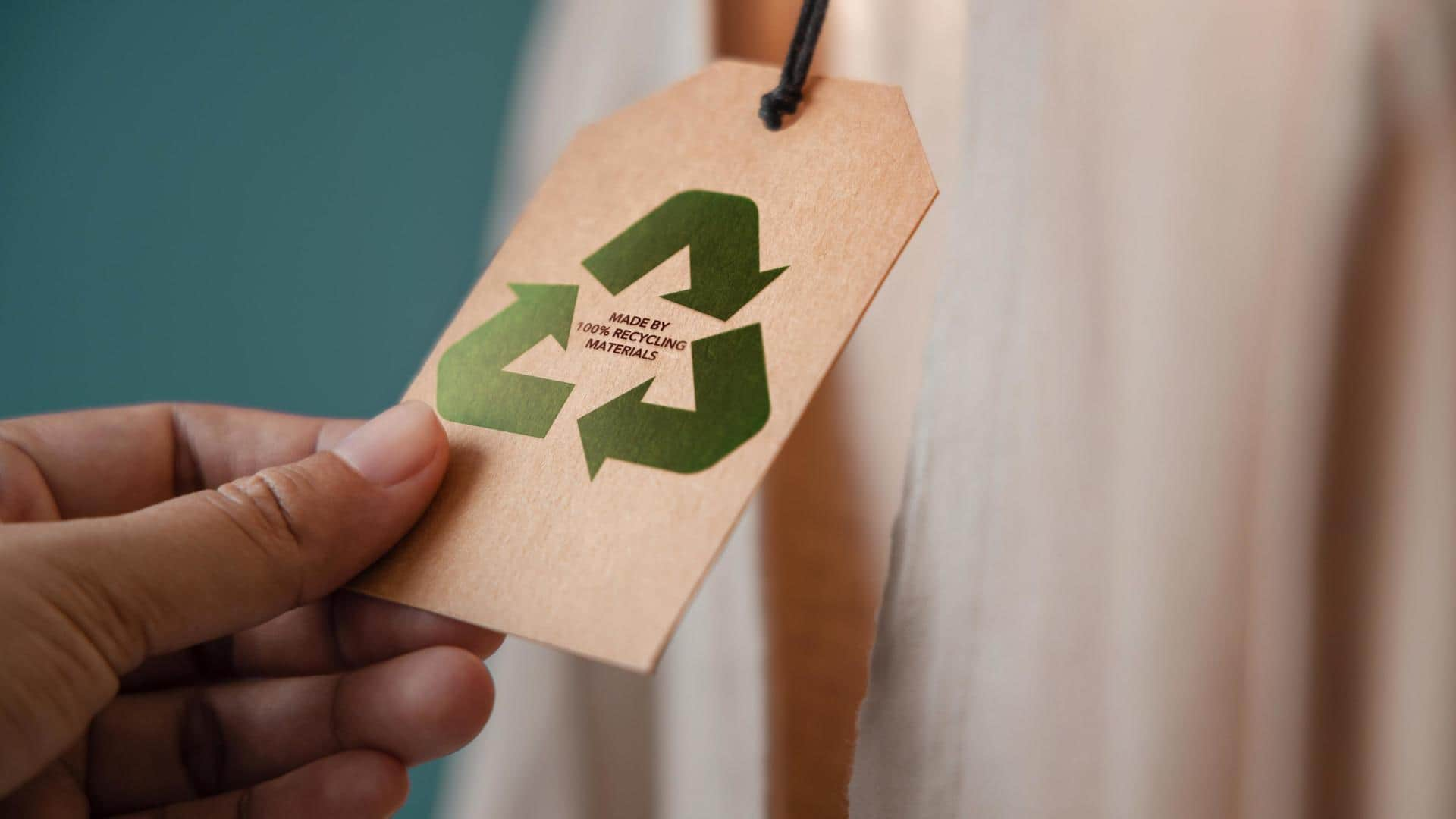
World Environment Day: Game-changing fabrics for a greener fashion future
What's the story
The fashion design industry is booming, but it's also causing significant environmental problems. Fast fashion is tempting because it's cheap, but it comes at a cost. The unsold and discarded inventory pollutes water, air, and soil, disrupting the delicate balance of life. On this World Environment Day, let's delve into innovative materials that are transforming the fashion industry and striving to minimize environmental impact.
Algae
Algae-based weatherproof fabric
Did you know that algae are incredibly efficient organisms? Scientists have discovered a way to use algae to create a special fabric that can withstand different weather conditions. They mix powdered seaweed with fats from different types of algae and then apply plant-based waxes to make it water-resistant. The fabric has a texture that's like a mix between waxed canvas and PVC vinyl.
Leather
Pineapple leather
Pineapple leather is made from leftover parts of pineapples that would have otherwise gone to waste. It is not only sustainable but also completely cruelty-free, making it a great alternative to traditional leather. It requires less water to process and doesn't involve any chemicals that could harm our environment and wildlife. Even the leftover pineapple leaves are recycled and used for fertilizer or biomass.
Coconut
Coconut water leather
This material is made using a special type of bacterial cellulose called Nata de Coco or coconut gel. The water from ripe coconuts undergoes fermentation to create this cellulose. To enhance its properties, fibers from hemp, sisal, and banana stems are added, resulting in grey sheets of material. These sheets are then treated and sometimes dyed, creating versatile and eco-friendly leather.
Rose
Rose petal silk
This fabric is made from the petals of Indian rose bushes. The fabric is dyed using natural pigments, and it is completely biodegradable. The process involves breaking down the waste petals and spinning them into fibers. The result is a smooth and lustrous fabric that feels incredible to the touch. The best part is that these rose bushes don't require any chemicals to grow.
Natural fibers
Lyocell and other natural fibers
Made from cellulose found in wood pulp, Lyocell can break down naturally, therefore an eco-friendly choice. The production process of lyocell has a low impact on the environment. They recycle wastewater and avoid using any toxic chemicals. Conscious designers also use other natural fibers like hemp, cork, bamboo, and even seaweed to create ethical and vegan clothing.